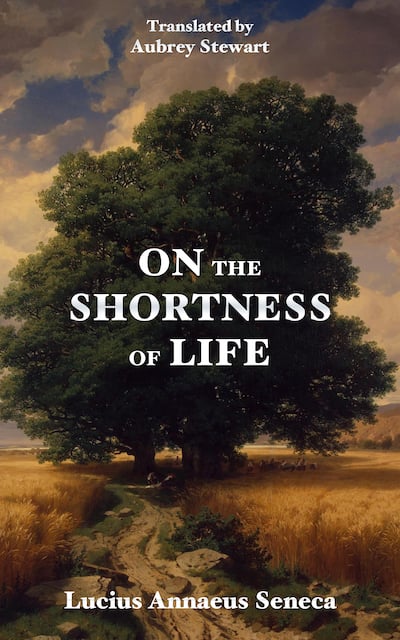On the Shortness of Life

On the Shortness of Life, a 2,000-year-old moral essay by the Roman Stoic philosopher Seneca the Younger, remains one of the most poignant meditations on time and meaning ever committed to the page. Seneca composed the piece in 49 AD as a letter to his father-in-law Paulinus, arguing that most people waste the precious little time they have in life on meaningless pursuits. True happiness and fulfillment, Seneca contends, can only be achieved by living with intention and purpose in the present moment.
At the core of Seneca's essay is the idea that life is not short if we use our time properly. The problem, as Seneca sees it, is that we fritter away our days on frivolous distractions, always putting off our true goals and passions for an elusive future. "It is not that we have a short time to live, but that we waste a lot of it," Seneca writes. "Life is long enough, and a sufficiently generous amount has been given to us for the highest achievements if it were all well invested."
For Seneca, the path to a life well-lived is found in the pursuit of wisdom, virtue, and self-mastery - the hallmarks of Stoic philosophy. By letting go of the fleeting pleasures of wealth, status, and sensual indulgences, we free ourselves to focus on the things that truly matter. This requires an acceptance of the finitude of existence and a willingness to confront our own mortality. "You live as if you were destined to live forever, no thought of your frailty ever enters your head," Seneca chides.
Born in 4 BC in Cordoba, Spain, Seneca rose to become one of Rome's most influential writers and politicians, serving as an advisor to the Emperor Nero. His other notable works, including Letters from a Stoic and Dialogues, expand on the themes found in On the Shortness of Life. Yet Seneca's own life was marked by a tension between his philosophical ideals and the messy realities of politics. His complicity in some of Nero's misdeeds, and his vast personal wealth, led some to brand him a hypocrite. In 65 AD, Seneca was forced to take his own life on Nero's orders, meeting his end with a calm derived from his Stoic practice.
In many ways, On the Shortness of Life reads as a reminder to Seneca himself to stay true to his principles. The work has had a profound influence on writers and thinkers through the ages, from Michel de Montaigne to Ralph Waldo Emerson. In recent years, Seneca has found a new audience among entrepreneurs and self-help gurus, who see Stoicism as a tool for achieving success and inner peace. Yet this popularization has also invited criticism, with some arguing that Stoicism promotes an unhealthy suppression of emotions.
Ultimately, the power of On the Shortness of Life lies in its timeless insight into the human condition. We are all given the same 24 hours each day, yet how we choose to spend that time makes all the difference. By living with purpose and presence, Seneca suggests, we can transcend the brevity of our years. "Life is long if you know how to use it," he writes. It is a lesson as urgent today as it was two millennia ago.